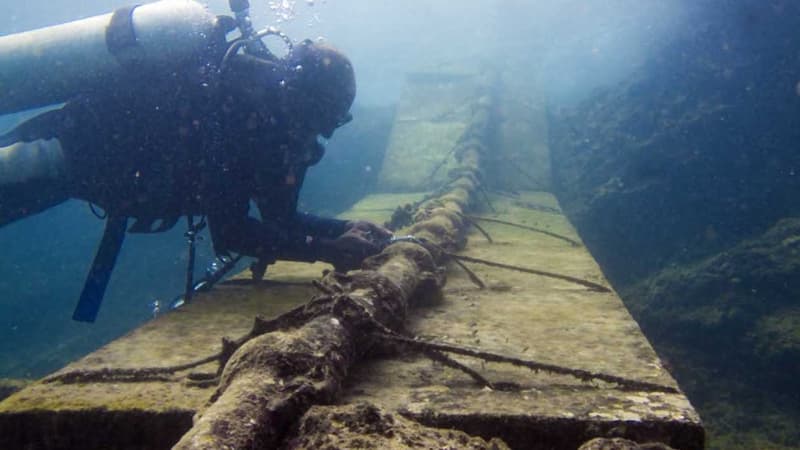Sabotage or accident? During the night of November 17 to 18, two submarine fiber optic communications cables were damaged. One connects Finland to Europe via Germany and the other connects Sweden to Lithuania.
The proximity of these two events raises the hypothesis of an act of sabotage. The main suspect, if not the only one, is a Chinese bulk carrier, the “Yi Peng 3”, which was sailing in the area where the cables were located at the time of their cutting. For the moment, China formally denies any responsibility in this matter.
But, to be clear, Sweden has just requested that the Chinese cargo ship, anchored off its coast, return to its territorial waters to contribute to the investigation.
“We have been in contact with the ship and with China and we have made it clear that we want the ship to head towards Swedish territorial waters,” Prime Minister Ulf Kristersson said at a news conference.
“Laughter” and “absurd”
There is no indication that Yi Peng 3 was involved in the incidents. But the fact that the ship has remained anchored since Tuesday in the Kattegat Strait between Sweden and Denmark raises questions, including the possibility of an act of hybrid warfare committed for the benefit of Russia. War is called hybrid when it combines conventional warfare operations, asymmetric (or irregular) warfare, cyber warfare and other tools such as disinformation.
The Kremlin considered it “laughable” and “absurd” to accuse Russia of being behind the breakage of the two cables. For Berlin, this hypothesis is largely plausible, as announced by Chancellor Olaf Scholz and German Defense Minister Boris Pistorius.
The threat to submarine cables is not new. It even increased with the sabotage of the Nord Stream 1 and 2 gas pipelines. These networks that connect continents using optical Internet cables or power lines are considered vitally important. They are subject to special monitoring, but the recent breakage of the two cables shows that it is not possible to guarantee 100% safety.
There are more than 400 submarine lines that constitute a network of 1.3 million kilometers. The longest is 3,900 kilometers and connects Southeast Asia with Western Europe through the Red Sea.
Plane crash and package bombs
Other recent developments point to Russia’s responsibility. During the night of Sunday to Monday, a cargo plane of the transport company DHL departing from Leipzig, Germany, crashed near the Vilnius airport, in Lithuania. The death toll is at least one.
Authorities who have opened an investigation have not yet ruled out any motive for the accident, including an act of terrorism.
“We warned that such things were possible, we see an increasingly aggressive Russia (…) but we still cannot (…) point the finger at people,” Darius Jauniskis further stated.
Another case affects DHL. This summer, packages containing incendiary devices were found in the logistics group’s warehouses in Germany and Britain, where they caught fire. In Poland, a package also set a DHL truck on fire, according to Gazeta Wyborcza newspaper. In early November, several people were arrested in this case in Lithuania and Poland. Several clues would lead to Moscow.
Source: BFM TV


